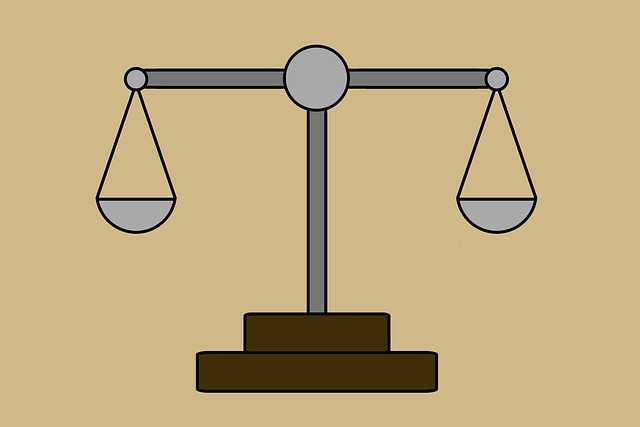Resolving Joint Property Ownership Conflicts (JPOCs) demands a legal expert's touch, especially in high-value real estate and inheritance cases. Co-ownership agreements often lead to disputes due to differing owner goals, expectations, and operational styles. To mitigate these conflicts, establish clear communication, well-defined roles, and robust dispute resolution mechanisms from the start. Open discussions, mediation, and comprehensive agreements can prevent misunderstandings and protect business interests through mutually agreeable solutions. Understanding regulatory compliance is crucial; addressing ownership conflicts requires identifying root causes and developing strategic approaches to ensure legal obligations are met collectively.
Navigating joint property ownership can be a complex web of legal and regulatory considerations, especially as conflicts arise from differing agreements. This article delves into the intricacies of understanding co-ownership, identifying common disputes, and offering strategic solutions. We explore effective methods to resolve and prevent property clashes, with a specific focus on ensuring compliance during transactions. By understanding these aspects, folks can foster smoother relationships and create indelible, legally sound joint property arrangements.
- Understanding Joint Property Ownership: A Legal Perspective
- Common Conflicts Arising from Co-Ownership Agreements
- Strategies to Resolve and Prevent Property Disputes
- Ensuring Regulatory Compliance in Joint Property Transactions
Understanding Joint Property Ownership: A Legal Perspective

Joint property ownership, a legal concept that often arises in matters of real estate and inheritance, presents unique challenges when it comes to regulatory compliance. In many jurisdictions, resolving Joint Property Ownership Conflicts (JPOCs) involves navigating complex laws pertaining to partnerships, trusts, and succession. These conflicts are particularly prevalent in high-stakes cases, where the stakes are high and the potential for white collar and economic crimes is a constant concern.
Understanding JPOCs requires a comprehensive grasp of all stages of the investigative and enforcement process. Legal professionals must carefully analyze contracts, deeds, and other relevant documents to ascertain the rights and responsibilities of each owner. This meticulous approach ensures that regulatory compliance issues are addressed proactively, minimizing legal complications and potential financial losses during the resolution of such conflicts.
Common Conflicts Arising from Co-Ownership Agreements

Co-ownership agreements can often lead to a variety of conflicts as each party brings their own goals, expectations, and operational styles to the table. Common issues arise from differing views on financial responsibilities, decision-making processes, and control over the property. For instance, one owner might want to maintain full autonomy in managing the property, while another may prefer a more collaborative approach. Disagreements can also surface when it comes to distribution of profits or sharing of expenses, especially if there are disparities in contributions or perceptions of fair market value.
Resolving these joint property ownership conflicts involves clear communication, well-defined roles and responsibilities, and robust dispute resolution mechanisms from the outset. A comprehensive agreement that outlines each party’s rights, duties, and remedies can help navigate potential pitfalls throughout all stages of the investigative and enforcement process. Engaging in regular check-ins and open discussions promotes alignment and mitigates misunderstandings. If conflicts do arise, it is advisable to explore options like mediation or, in more complex cases, general criminal defense strategies, ensuring that each party’s respective business interests are protected while striving for a mutually agreeable solution.
Strategies to Resolve and Prevent Property Disputes

When it comes to resolving and preventing property disputes, especially those involving joint ownership, there are several strategic approaches that can be employed. The first step is open communication and mediation. Encouraging all parties involved to sit down together and discuss their concerns openly can often lead to mutually agreeable solutions. This method not only saves time and legal fees but also fosters a cooperative environment, which is crucial in resolving joint property ownership conflicts.
Additionally, establishing clear agreements upfront can significantly mitigate potential disputes. Comprehensive contracts that outline the rights, responsibilities, and expectations of each owner can serve as a solid foundation. These agreements should be reviewed by a legal professional with experience in real estate to ensure they are enforceable and tailored to the specific high-stakes cases at hand. An unprecedented track record of successfully managing such complex matters can provide assurance that these strategies will protect against future conflicts, particularly in areas where general criminal defense may not be immediately applicable.
Ensuring Regulatory Compliance in Joint Property Transactions

Navigating regulatory compliance in joint property transactions can be a complex web, especially when addressing ownership conflicts that arise from these arrangements. When two or more parties jointly own a property, ensuring adherence to relevant laws and regulations becomes a collaborative effort. Each respective business involved must understand their responsibilities to avoid potential legal pitfalls. These obligations extend to disclosing all material information, obtaining necessary approvals, and managing any financial transactions related to the property transparently.
Resolving joint property ownership conflicts often requires a strategic approach. Understanding the root cause of the issue is key; whether it stems from differing business practices, white-collar and economic crimes, or misaligned goals. Once identified, these challenges can be tackled head-on. A robust strategy might involve presenting compelling arguments to win challenging defense verdicts, ensuring compliance remains at the forefront throughout the process.
In navigating the complex landscape of joint property ownership, understanding legal perspectives, anticipating common conflicts, and implementing preventative strategies are key. By fostering open communication, meticulously drafting agreements, and ensuring strict regulatory compliance, individuals can avoid costly disputes and preserve harmonious co-ownership arrangements. Resolving joint property ownership conflicts effectively requires a multifaceted approach, ultimately enhancing the stability and longevity of these partnerships.






